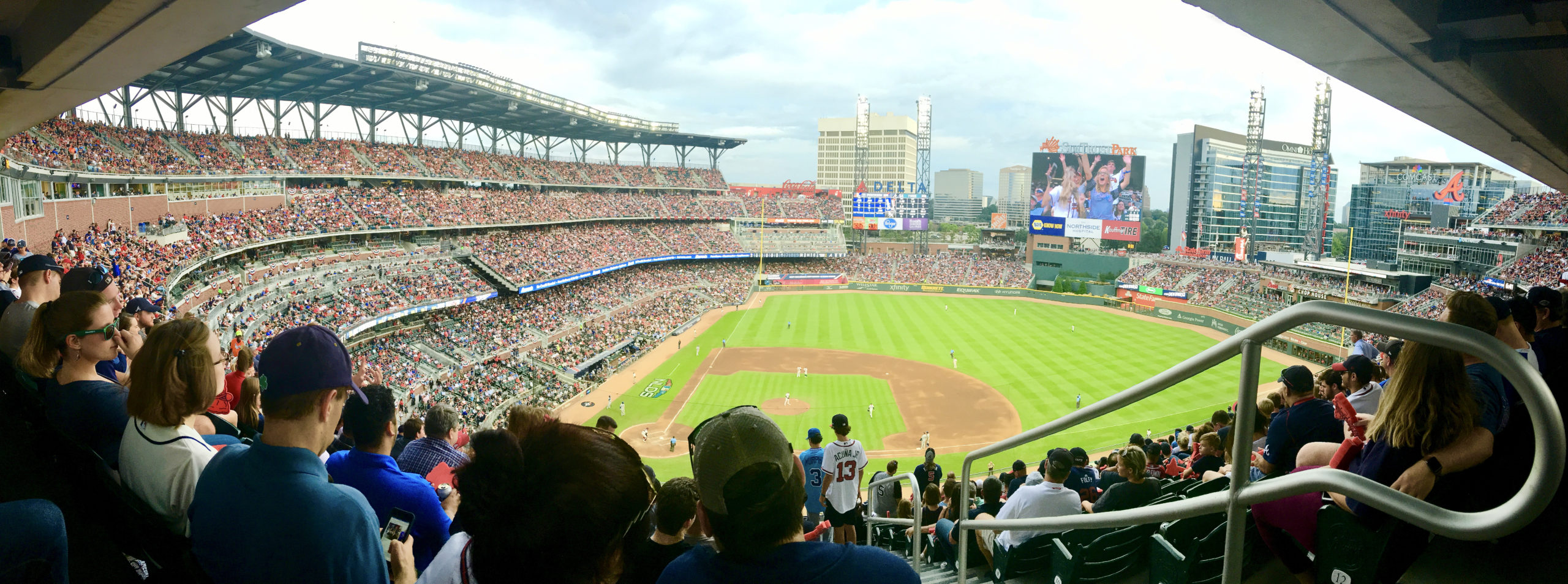
(GA Recorder) – The fallout from Georgia’s controversial new voting law resulted in an economic blow Friday when Major League Baseball announced it would move this summer’s All-Star game out of the state.
The league’s decision to no longer hold the game in Cobb County on July 13 received a mixed reaction from the state’s elected officials as pressure increases on businesses to take a stronger stance against Republican-backed voting laws that critics argue will disproportionately affect minorities.
MLB joins Georgia-based Delta Air Lines and Coca-Cola as powerful entities to speak out against a voting measure that Republican Gov. Brian Kemp quickly signed into law last Thursday. President Joe Biden also said this week that he would “strongly support” moving the game.
Since Kemp signed the voting overhaul bill last week, voting rights organizations have filed four federal court lawsuits challenging restrictions on absentee ballot drop boxes, a ban on third parties providing water or snacks to votes standing in lines and many other provisions.
Baseball Commissioner Rob Manfred said the decision to relocate the All-Star game and the baseball draft came after thoughtful discussions with players, the player’s association, and others.
“Major League Baseball fundamentally supports voting rights for all Americans and opposes restrictions to the ballot box,” Manfred said in a statement that sent shock waves through Georgia politics Friday.

Kemp railed against the decision as “cancel culture” based on the “liberal lies” that Georgia is restricting access to the ballot box. Kemp and other Republican lawmakers have touted provisions in the new law that increase opportunities to vote statewide and have argued the sweeping changes packed in the measure were needed to restore confidence in the state’s elections.
Former President Donald Trump and his supporters repeatedly cast doubt on the integrity of the state’s election system after he narrowly lost in Georgia last year by about 12,000 votes.
“Georgians – and all Americans – should fully understand what the MLB’s knee-jerk decision means: cancel culture and woke political activists are coming for every aspect of your life, sports included,” Kemp said in a statement. “If the left doesn’t agree with you, facts and the truth do not matter.”
“This attack on our state is the direct result of repeated lies from Joe Biden and Stacey Abrams about a bill that expands access to the ballot box and ensures the integrity of our elections,” Kemp said.
The Atlanta Braves said moving the multi-day, sprawling event will harm area businesses, employees and fans.
The loss of one of the most prestigious events in professional baseball is also a blow symbolically since the league plans that week to honor former Atlanta Braves legend Hank Aaron, who passed away in January.
“The Braves organization will continue to stress the importance of equal voting opportunities, and we had hoped our city could use the event as a platform to enhance the discussion,” the team statement said. “Our city has always been known as a uniter in divided times, and we will miss the opportunity to address issues that are important to our community.”
Atlanta Mayor Keisha Lance Bottoms warned that losing out on the All-Star Game is likely one of the first of “many dominoes” to fall in response to the state’s new election law.
“Just as elections have consequences, so do the actions of those who are elected,” the Democrat tweeted.
And Stacey Abrams, the founder of the voting rights organization Fair Fight Action, said she was disappointed by the league’s decision but the former Democratic candidate for governor also commended the players, owners, and league commissioner for speaking out.
Abrams had tried to steer companies toward applying pressure in other ways, like pushing for a federal election law that would protect voting rights as states pursue similar sweeping laws similar to Georgia’s.
But she placed the blame for the league’s decision squarely on Georgia Republicans.
“Republicans who passed and defended Senate Bill 202 did so knowing the economic risks to our state. They prioritized making it harder for people of color to vote over the economic well-being of all Georgians,” Abrams said in a statement.
U.S. Sen. Raphael Warnock, who is a Democrat, called the league’s decision an “unfortunate consequence” of the GOP law.
“It is my hope that businesses, athletes, and entertainers can protest this law not by leaving Georgia but by coming here and fighting voter suppression head on, and hand-in-hand with the community,” Warnock said in a statement. “Additionally, the urgency to pass federal voter protection laws grows every day, and I will continue to be a leader in that fight.”
Republican Lt. Gov. Geoff Duncan, a former minor league baseball player and Georgia Tech standout, said he was looking forward to the showcase event coming to Georgia, but respects the league’s decision even though he disagrees with it.
“The fallout from the post-election misinformation campaign led by former President Donald Trump continues to manifest itself and divide our nation,” he said. “And now misinformation surrounding Georgia’s new election reform has furthered that divide – even reaching MLB baseball.”
The economic reality of all-star games
The Braves stadium, Truist Park, has been a source of both pride and consternation in Cobb County where the county government’s decision to subsidize the private stadium remains controversial.

For those residents who support the stadium, the All-Star Game represented an opportunity to demonstrate Truist Park’s capacity to bring in tourists and their tax dollars.
Cobb County Commission Chair Lisa Cupid, a Democrat, said she shares the concerns with the voting bill, but argued that moving the game would only hurt local businesses and workers.
“As much as we were buoyed by the decision that they made to come here, we were deflated, in a sense, when we learned that they were going to make a decision otherwise,” said Cobb County Commission Chair Lisa Cupid, who had encouraged the president and others to consider alternatives to boycotts.
Major League Baseball estimated the game’s economic impact would have been between $37 million and $190 million, though some doubt those figures.
Kennesaw State University economics professor J.C. Bradbury said those numbers are not even in the ballpark. He said most of the people who would have attended the game and other festivities likely live in metro Atlanta and would have spent their money there anyway.
“The empirical estimates we have, when we look at past All-Star games, the changes in economic activity is between zero and sometimes negative,” he said.
Still, for the people who own and work at the businesses near Truist Park, the league’s decision means the loss of an economic bump that would have been welcome following a pandemic slump, said Cobb County Commissioner Kelli Gambrill.
Gambrill, a Republican, said SB 202 would be considered a “cleanup” bill in any other year and blamed the league’s decision on misinformation about the bill.
“Because of the number of people that were going to be coming in, it was going to be benefiting all the surrounding businesses, the hotels, restaurants, our shops, places that have not had a lot of business this past year because of COVID,” said Gambrill.
Deputy Editor Jill Nolin contributed to this report.






